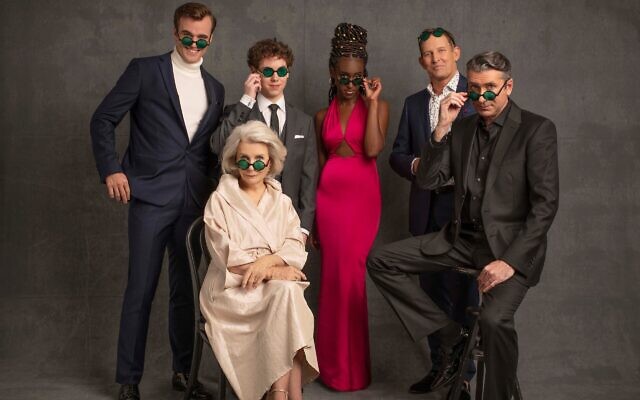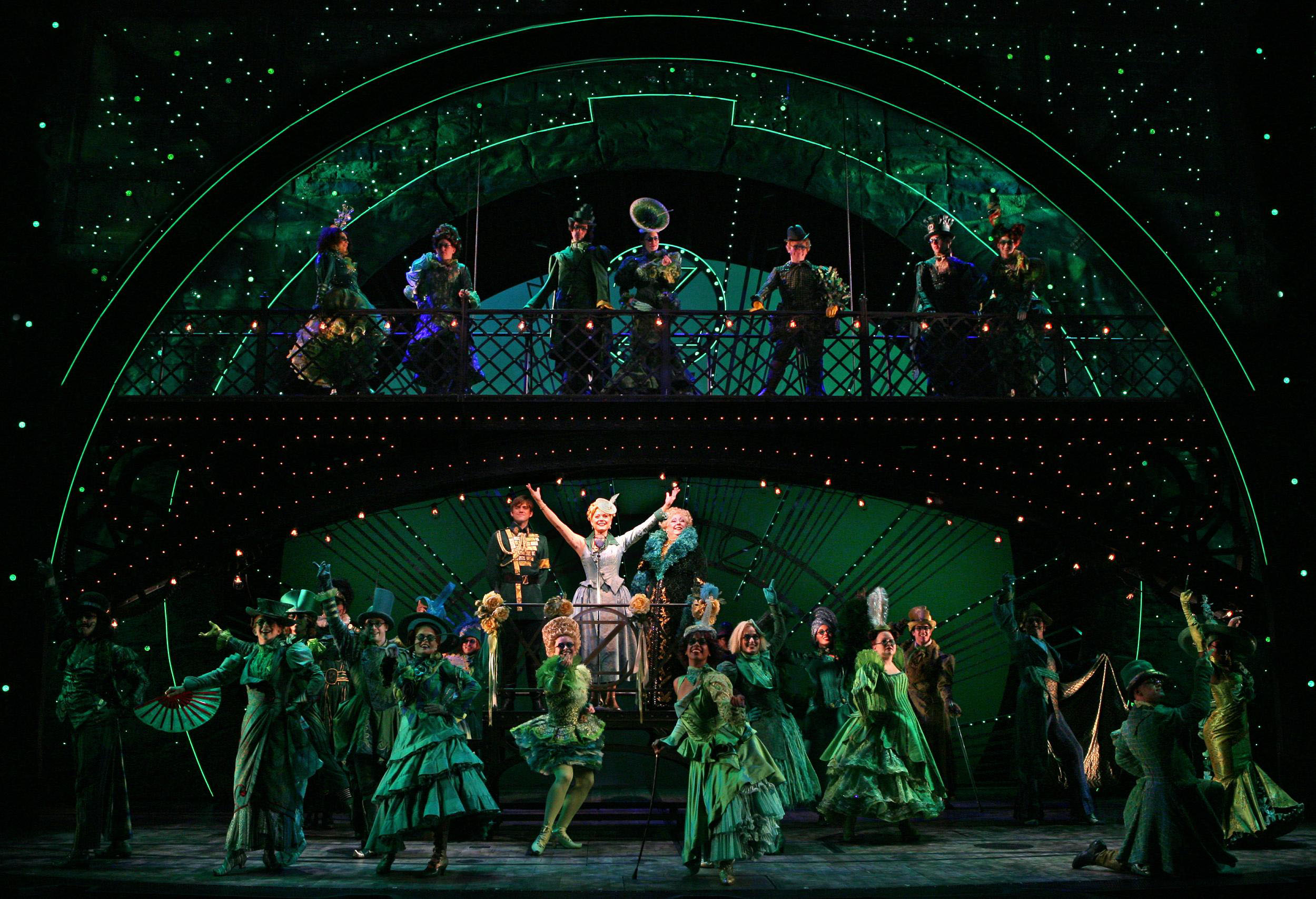Just how did the Wicked Witch of the West get her black hat? And what is so special about the ruby slippers? Why is the Lion cowardly? Where did the Tin Man come from? Have you ever wondered how the characters of Oz came to be?
The story of the witches of Oz started long before the time of Dorothy, when Elphaba and Galinda were actually friends. It sounds unlikely, but it’s the beautiful story of Wicked, written by Stephen Schwartz and Winnie Holzman.
It’s not every day you get to speak to a composer and lyricist, especially one as accomplished as Stephen Schwartz. I’ll admit, I was a tad starstruck when he came onto the Zoom call. Just a few months ago, I was watching The Prince of Egypt – for which Schwartz won an Academy Award with his song When You Believe – with my young kids as we prepared for Pesach dinner. And he was an absolute delight to talk to.
Schwartz told me that music has been his love since he was a baby in his cot, and that his love of musical theatre was definitely inherited from his parents.
“I was always very attracted to music,” he said. “My parents, neither of whom are remotely musical, were theatre-goers and they had cast albums. I used to listen to those,” he recalled, before also sharing the story of their friend, George Kleinsinger.
“We used to go over to his house, and he would play something he was working on, and I would go over to their piano and pick out the tune. After a couple of times, he suggested that maybe I should get a piano and take lessons.”
We're so happy to finally share our Elphaba & Glinda! Come BTS of our photoshoot with Sheridan Adams & Courtney Monsma ✨????
New seats just released at the @SydneyLyric from 18 – 22 Oct 2023! See our stars and book presale tickets now – https://t.co/RycBzZ3FS5 ???? pic.twitter.com/zWDzf6cWYj
— WICKED Aus & NZ (@WickedinOz) April 3, 2023
Schwartz first saw the potential of Wicked when he read the 1995 Gregory Maguire novel Wicked: The Life and Times of the Wicked Witch of the West. He referred to it as “instinct” when I asked him why he wanted to share the story on stage. When he found out that Maguire had already released the rights to the story to Universal Pictures, Schwartz worked his magic, persuading Universal producer Marc Platt to back his adaptation. And the rest, as they say, is history.
Wicked is now the fourth longest-running Broadway show. It has won countless Tony Awards, Drama Desk Awards, and a Grammy Award, and it has spawned many worldwide productions for which it has broken box-office records. In 2016, Wicked surpassed US$1 billion in total Broadway revenue, the only show other than The Phantom of the Opera and The Lion King to do so and by 2017, it had surpassed Phantom.
At its core, Schwartz shared, Wicked is a story about empathy, which is what he hopes audiences take from the “physically beautiful and extremely theatrical” production.
“I feel like we have far too little of that in the world today. It’s a really missing value that would make all of our lives a lot better, if everyone was able to look at other people and try to put themselves in their shoes, to see from their point of view and to try to understand what’s motivating them, instead of just immediately judging them from the outside,” he mused.

He is, of course, referring to Elphaba who became the Wicked Witch of the West. What happened in Elphaba’s past that made her become who she is? And what became of Elphaba’s friendship with Galinda, later known as Glinda the Good Witch. The pair who were vastly different – one born with emerald-green skin who is smart, fiery, misunderstood and possesses an extraordinary talent, and the other who is bubbly, blonde, ambitious and exceptionally popular – become rivals and then friends. But then the world decides to label them “wicked” and “good”.
“I had a connection to the story, just hearing the title and basic idea, but in the end, it has to do with the central character of the of the Wicked Witch,” Schwartz said, continuing to explain that Maguire had the idea to look at things from her point of view, which is something that Schwartz himself has always been drawn to.
“I tend to be attracted to stories about outsiders and people who come from shall we say, a non-traditional point of view. Getting in their heads and looking at what’s really going on with people and not necessarily what you’re being told by friends or social media. I think that was inherent in Maguire, writing the book – it’s going to turn that story around and come at the story from another point of view.”
Elphaba becomes the unredeemed and irredeemable villain in The Wizard of Oz. But in Wicked, that’s not the case.
Schwartz felt an immediate affinity with Elphaba, but he also really liked the core relationship between Elphaba and Galinda, saying it was much more complicated and nuanced than anyone had reason to expect.
What drew him to the story were the little mysteries that get solved along the way, which was some of the fun that he and writing partner Winnie Holzman had in crafting the show.
“Wicked has so many totems that we were able to explore what the origin of them was, so that was a lot of fun,” he recalled.
Schwartz, of course, is also known for his involvement in many motion picture productions, including Pocahontas, The Hunchback of Notre Dame – two of my personal favourites, which I very happily shared with him, resulting in a big smile from the composer – and more recently Enchanted and its sequel, Disenchanted. When I asked him if he has different processes between writing for theatre and writing for motion picture, he shared that while they’re the same, you do need to keep in mind the medium.
“If one is writing for the stage, then there are certain things you need to keep in mind that you know will be effective on stage and things that you can’t do on stage,” he explained.
“With film, one has to keep in mind that it’s called a motion picture for a reason, things need to be more or less constantly in motion. But other than that, it’s the same basic idea of illuminating the characters, advancing the story and expressing the themes through music.”
He said though that while they have different challenges, he enjoys them both the same.
I did though ask him if he had a favourite production or film that he has worked on.
While he remained coy at first, saying that he tends to avoid the question because he thinks audiences should see things the way they do rather than through his eyes, eventually he shared that he has a strong fondness for Children of Eden, which is based on the Book of Genesis, telling the stories of Adam and Eve, Cain and Abel, and Noah and the flood.
“That one remains very close to my heart because of what it’s about and the thematic ideas in it.”
While Schwartz said he’s not able to be in Australia for the opening night of Wicked, he hopes he can get down under during the run.
So keep an eye out for him in the crowd, you may just get as starstruck as I did.
Wicked is at Sydney’s Lyric Theatre from August 25. Tickets: wickedthemusical.com.au


comments